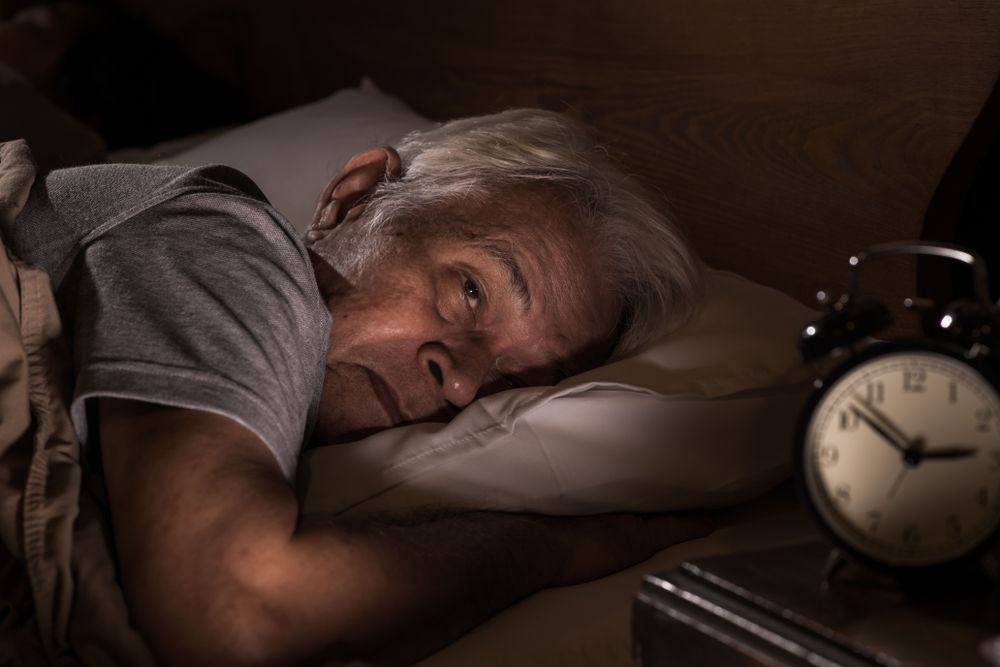My Mother and her cat moved to Harbison Shores about a month and a half ago. Mother made the decision to move to assisted living herself, and we were very blessed that CarePatrol helped us find Harbison Shores shortly after she made the decision. Mother keeps telling us how content she is to be at Harbison Shores and how safe she feels, and the cat has settled in nicely as well. The staff and leadership team have all been lovely to work with. We have very much appreciated how responsive they all are to our requests and emails, and how ...kind they are to the residents. The wooded setting and outdoor areas are calming and beautiful, and Mother's apartment is perfect. Having Mother at Harbison Shores has lifted many anxieties from all our shoulders!
Show MoreLessSleep Problems and Seniors Back

It’s that old familiar problem...not getting a good night’s rest. Whether it’s having trouble falling asleep, waking up frequently in the night or early morning, getting less quality sleep (a.k.a. “deep sleep”), or only being able to sleep for a few hours; sleep disorders tend to surface as a common problem for older adults. Dr. Leslie Kernisan of the UCSF Division of Geriatrics says that, “normal aging brings on some changes to sleep. Basically older adults tend to sleep less deeply than when they were younger.” Often times, lack of sleep contributes to daytime fatigue which complicates driving and participating in typical activities.
Sleep Disorders Vs. Sleep Problems
During those regular doctor’s visits, you will probably be asked about how well you think you are sleeping. Sleep disorders include apnea (which is a temporary cessation of breathing during sleep), and periodic limb movement (or “restless leg syndrome,” when your constantly urged to move your legs repeatedly before falling asleep). Sleep disorders are diagnosed after a thorough medical examination, review of current prescriptions, and possible testing. Medical equipment may be provided or medication may prescribed for a sleep disorder. It is important to note that side effects to medications for sleep disorders are widely known to be habit-forming, and often do not provide long-term relief from sleep disturbance.
As we age, it is most likely certain that we will not sleep as long or as deeply as we do when we are younger. While sleep problems may persist as we age, there are measures we can take to increase our chances of sleeping as soundly as possible. Here are a few ways you can examine your routine to make changes if you need to improve your sleep:
-
Ensure Proper “Sleep Hygiene.” Sleep hygiene is a great way to describe how our bedtime routines either impede or improve our nighttime sleep. Consistent routines such as having a regular bedtime, bathing, or reading are all ways that signal your body that it is time to rest. Exercising (within four hours of bedtime), smoking, taking mid afternoon naps, drinking alcohol or caffeine all impede quality nighttime sleep.
-
Ensure There Are No Underlying Medical Problems. Sleep problems can be the result of a health condition. When treated properly, health conditions should not affect our ability to sleep well. Common health conditions that tend to affect sleep are heart and lung conditions, gastroesophageal reflux disease, arthritis, urinary problems, and even mood problems such as depression and anxiety. Discuss any concerns with your doctor or pharmacist if you are experiencing insomnia or sleep problems.
As we age, lack of sleep can have dangerous consequences such as depression or risk of falling. Implementing better “sleep hygiene” takes time and dedication, but as you do this with help from your loved ones and your doctor, you can take control of your sleeping habits. Often times, getting to the root of the issue is the first step in making an improvement.




